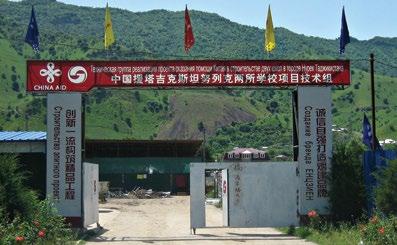
1 minute read
Buying friends, and influencing countries
from Global-is-Asian 2020 issue
by Lee Kuan Yew School of Public Policy, National University of Singapore

Featured Faculty: Zheng Huanhuan Assistant Professor, Lee Kuan Yew School of Public Policy
Foreign aid, or overseas development assistance (ODA), is ostensibly aimed at promoting welfare, or economies, in recipient countries, but in reality is also used by donor countries for a range of purposes, including to strengthen international alliances, to maintain political regimes, or to gain support in international affairs.
It has been argued that donor countries use foreign aid — by providing and potentially terminating it — as a “carrot” and stick” approach to shape a recipient country’s behaviour.
Research from the Lee Kuan Yew School of Public Policy has found new evidence that foreign aid can be used as a “stick” by donor countries, but not necessarily a “carrot”.
In fact, the study finds that increasing foreign aid often negatively impacts bilateral relations, something that has become more pronounced since the end of the Cold War, in politically stable regions, and in countries where both the United States and China are donors.
In the paper, Can Money Buy Friendship? Evidence from International Aid and Political Relations, Assistant Professor Zheng Huanhuan utilises data of bilateral aid from 47 donors to 194 recipient countries between 1973 and 2013, and shows that cutting foreign aid actually strengthens bilateral relations, but no evidence to indicate that increasing foreign aid improves relations further. This outcome provides evidence, therefore, that foreign aid is often used by donor countries as a “stick” to urge the recipient country to improve bilateral relations, but that strong relations between the two countries cannot necessarily be “bought”.
Read the full article https://nus.edu/3oKhcsW










